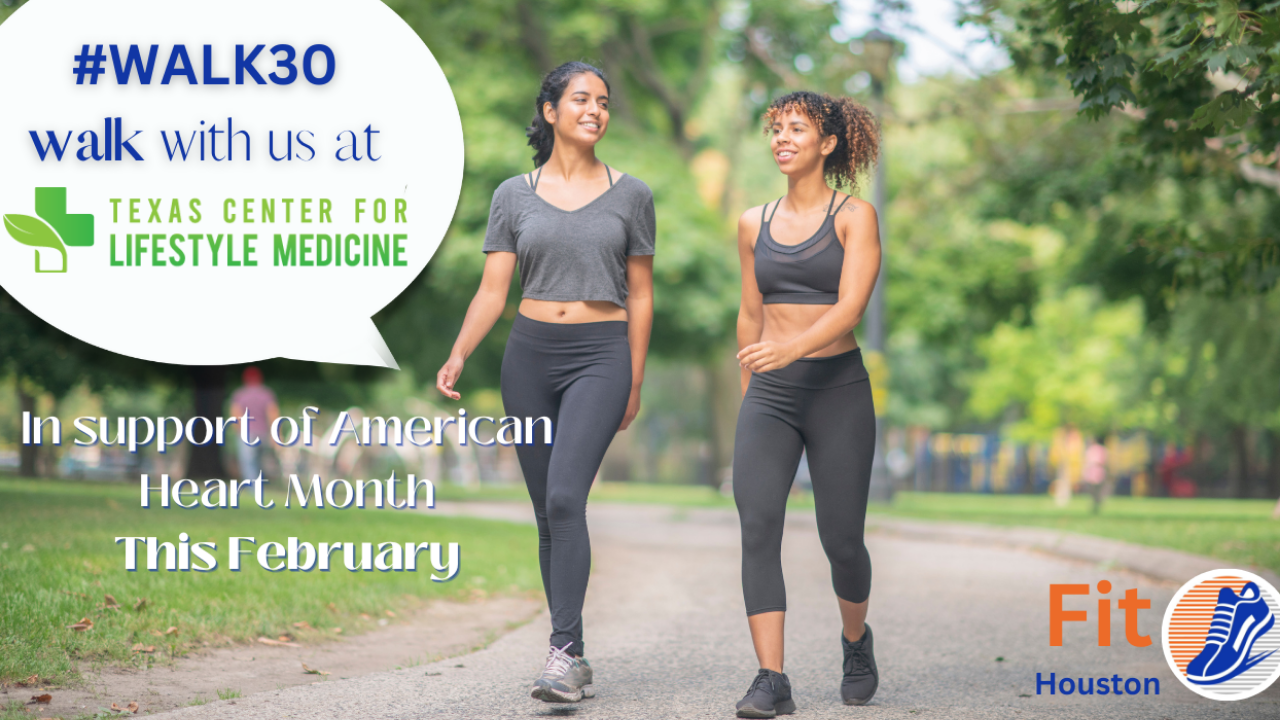Blog
Nutrition Coaching Group Visits!

Are you looking to improve your nutrition and discover how to eat a balanced, healthy diet but don't know where to start? We know how challenging and lonely a chronic healing journey can be. Whether you struggle with an invisible but challenging illness, desire to lose weight, are seeking to reverse diabetes, or simply want to lead a healthier life, it is very challenging to walk along a health journey by yourself. Therefore, group coaching visits with Ruben Lespron, Registered Dietitian, may be the perfect opportunity for you.
Group coaching visits provide an interactive way to learn about nutrition and how different food groups can be balanced for one's specific needs. As a society, we tend to over complicate nutrition. Most of us have tried various fad diets in order to resolve our health issues or in an attempt to find a quick fix for our metabolic issues. While short-term dietary changes may be beneficial to some degree, we know that it is the lasting and consistent lifestyle ...
Practitioner Spotlight: Melissa Talwar, Functional Medicine Health Coach

Get to know Melissa Talwar, our compassionate and dedicated health coach who leads the virtual Trasformational Group Coaching Programs at TCLM. Melissa is a National Board Certified Functional Medicine Health Coach, Certified in the Wahls Protocol, Keto Nutritionist, and Certified ReCODE 2.0 Health Coach. She recently completed her Master's in Neuroscience and is currently enrolled in the Clinical Master's Program at the Kharrazian institute. After multiple concussions and a sports injury in high school, she was left in chronic debilitating pain. Melissa would spend 20 years in declining health, homebound, and living with no hope of addressing her fibromyalgia and "autoimmune something" diagnoses. Using Functional and Integrative Medicine principles she was able to reclaim her health and is now on a mission to empower patients to find wellness again through health coaching. Melissa wants to make sure no one has to fight alone!
She is passionate about sharing the tools that have he...
Culinary Medicine: Kitchen Behavior Training- Don't miss the next one!

Are you looking for ways to improve your nutrition and meal planning? Do you need help implementing new and creative ideas to ensure you're eating nutritious AND delicous meals? Sign up for our kitchen behavior training sessions and discover tips, tricks, and more from a lifestyle medicine chef and registered dietitian!
Curious about what to expect? At this week's session, we discussed several tips on how to ensure that you don't go to bed hungry or impede your ability to get a good night's sleep! We discussed meal timing tips and strategies from a culinary and scientific perspective. We were able to learn to plan our meals in such a way that we support or digestion, especially before bedtime and nutrition strategies that will allow us to get the most out of our food. In our cullinary group visits, we enjoy discussions where we share practical tips, cooking strategies and deliver nutrional guidance that is specific to the needs of the group. Each group is centered around a specific...
February FitHouston #Walk30 Movement

Amazing things are happening this month in our community here in Houston! If you have not been keeping up with the events going on within the FitHouston health and wellness initiative, here is your chance to get plugged in to a wonderful fitness movement! This wellness initiative seeks to bring community together in taking part in a fabulous health program designed to better the physical, mental, and social health of our community. Leaders in Houston determined that a wonderful way to do so is to promote walking together as a community, as exercise is a free, transformative resource that everyone may take part in to improve their health.
February is the perfect time to take part in this fantastic wellness initiative. Fit Houston has partnered with an all star group of Houston Leaders including the Texas Heart Institute, HPD, Rice University, University of Houston, and more! This health initiative is encouraging us to pull together as a community to work toward improving metabolic and ...
Practitioner Spotlight: Carla Moss, Health and Wellness Coach

Introducing Carla Moss, one of our passionate Health Coaches for our Transformational Group Coaching Programs! Carla Moss is a National Board Certified Health and Wellness Coach, and a Functional Medicine Certified Health Coach who has been health coaching since 2012. She is the founder of Being Well Aware, her functional medicine health coaching practice based in Berkeley, California. Through her practice, Carla coaches women navigating cardio-metabolic issues, gut issues, and autoimmune conditions, along with hormone imbalances such as PCOS, adrenal dysfunction, thyroid dysfunction, estrogen dominance, peri-menopause, and menopause.
Carla received her health coaching training and certification from The Functional Medicine Coaching Academy, a collaboration with The Institute for Functional Medicine, the Institute of Transformational Nutrition, and the Institute for Integrative Nutrition. She also received specialty certifications in Hormone Health and Emotional Eating Psychology ...
The Transformational Program You MUST check out!

Creating and maintaining healthy habits is essential for physical, mental, and emotional health. Group coaching visits can be a great way to get support while establishing healthy habits that will stick with you in the long term. Group visits provide an opportunity to learn from other like-minded individuals in a safe and non-judgmental environment.
With Transformational Group Coaching Visits at TCLM, patients are provided with evidence-based lifestyle education and group support as they work to make meaningful lifestyle changes, such as adopting healthy eating habits, learning how to manage stress better, or improving sleep quality. The educational content has been designed by experts, health coaches, and medical providers. Group members have the opportunity to share their successes, struggles, and stories with one another; this helps to hold everyone accountable for their goals.
Group support also provides an opportunity to build relationships with individuals who are current...
Lifestyle Medicine: A Solution for Mental Health?

If you have ever struggled to get to the root of your mental or health struggles, know that you are not alone. Many people are unaware that their mental health can be closely related to their physical well-being. Therefore, they are left to guide themselves through their wellness journey alone or through trial and error, which can feel extremely frustrating and hopeless. Lifestyle medicine serves as a powerful bridge to achieve lasting health and wellbeing. It does this with an integrative approach, guiding individuals through behavioral changes, sleep hygiene tips, nutritional advice, and precise testing to get down to the core of any medical issue one may have. With lifestyle medicine’s highly influential methods for restoring balance in mind and body alike – it is no wonder why so many are turning towards it for optimal health solutions!
Lifestyle medicine takes into account your habits related to nutrition, sleep, exercise, and stress in conjunction with your environmental e...
Group Coaching Programs are Changing the Way Medicine is Practiced

Transformational Group Coaching Programs are transforming disease prevention and improving chronic illness outcomes. We have seen within our medical care system, a huge need for community support, patient- driven care, health education, emotional support, and real time dedicated to attending to patient's needs concerns. Unfortunately, providers often do not have the tools and resources required to deliver such care and are unable to dedicate time required to listen to patients deep needs and address holistic aspects needed for healing. This involves addressing the physical, mental, and emotional facets of health that most healthcare practices are not equipped to deliver.
Most people who suffer from chronic illness have been through several different physicians, specialists, and facilities before ever receiving a diagnosis. Even when they know what illness they are facing, they often complain of receiving very little background information regarding the causes of their disease, and def...
Is Infusion Therapy for You?

Thanks to Amy Bryant, Nurse Practitioner, patients have incredible therapeutic opportunities to promote healing of complex chronic issues that many practitioners shy away from. IV infusions are one of the many health tools used at TCLM to resolve chronic metabolic and immune issues. The purpose of IV therapy is to briefly boost vitamin stores in order to support and advance the healing process. IV cocktails are tailored to your specific medical needs. If it is determined that you may benefit from infusion support, IV therapy sessions will be scheduled according to the recommended frequency and duration while being continuously monitored. Infusions consist of specifically tailored vitamins and nutrients to support metabolic, immune, and detoxification pathways. IV cocktails may include but are not limited to, saline for adequate hydration, B vitamins, high-dose vitamin C, glutathione for detoxification, magnesium, carnitine, taurine, and other additional micronutrients. IV cocktails are...
What the Body Teaches us about Trauma

What the mind suppresses the body expresses.
Have you ever gone through a painful or traumatic experience and felt it physically in your body? Maybe you thought it was just a coincidence that your muscles started to ache, your stomach felt a bit off, or fatigue suddenly increased around the time of the event.. For some, the emotional impacts may have a delayed physical manifestation. Though it may seem coincidental, studies have proven that there are indeed physical impacts of trauma and emotions may be stored in the body, which may manifest in a variety of ways.
Here at TCLM, we do not separate emotional states of being from the body. Rather, we view emotions as real experiences that impact the body, just as much or even more than physical triggers to our physiology. Emotions have been described as "energy in motion." Energy that has no space or opportunity to be moved is energy that becomes trapped and stagnant. When this pattern perpetuates, just like physical triggers we can s...
